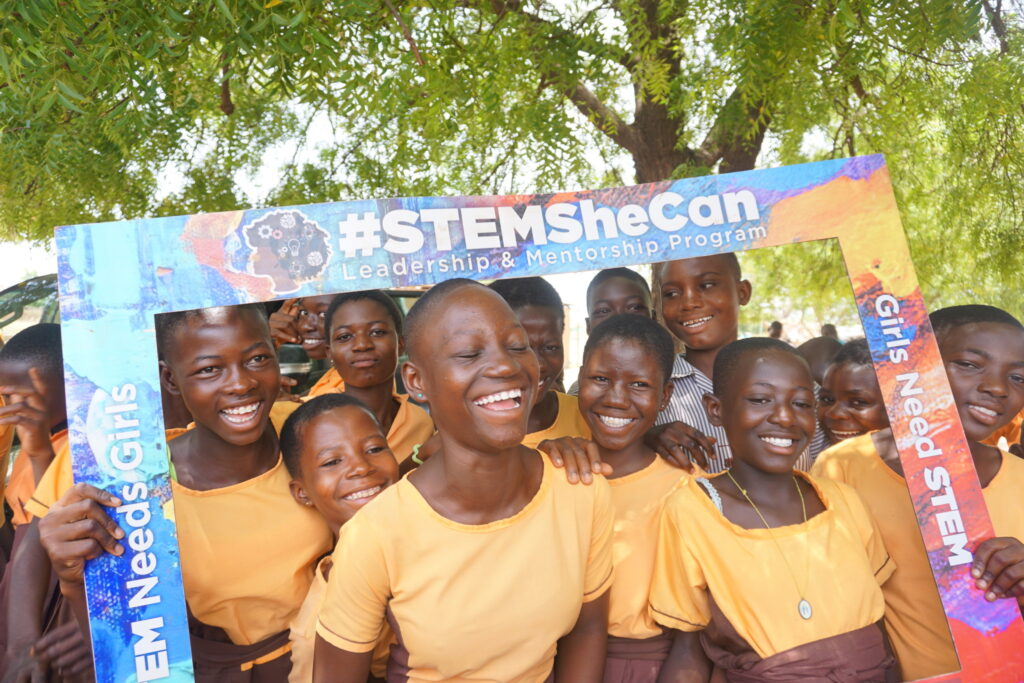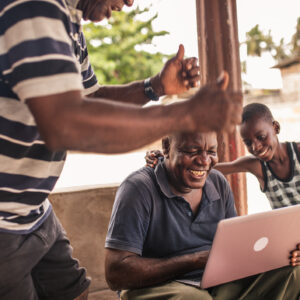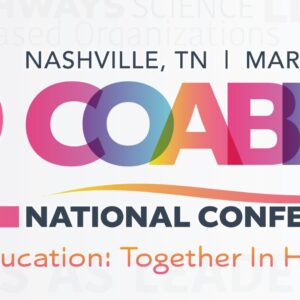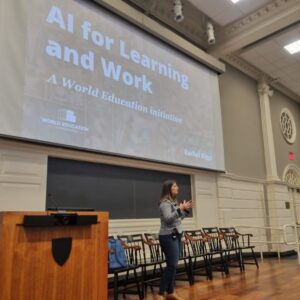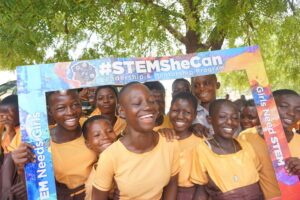
Women and girls around the world are under-represented in science, technology, engineering, and mathematics (STEM)-related professions. For female students in rural Ghana, the pursuit of a STEM career is largely out of mind and reach because teachers lack STEM knowledge and resources. There are few mentorship opportunities in the field, and few (if any) STEM programs in rural communities.
In response to these opportunity gaps, World Education, SpesForLife Foundation, and the LING Project held STEM mentorship programs in rural schools in early June. The mentorship programs are part of the SpesForLife initiative #STEMSheCan, which brings women who are STEM professionals to schools to encourage girls to take STEM-related courses.
Three-hundred-and-ten of the 581 students who participated in these mentorship programs also participate in World Education’s Strategic Approaches to Girls’ Education (STAGE) project. STAGE helps out-of-school girls transition to formal education, build life skills, receive mentorship, and access job opportunities, including in STEM. As World Education program manager Stephen Konde often reminds STAGE girls, “You are capable of choosing any career and making your dream a reality.”
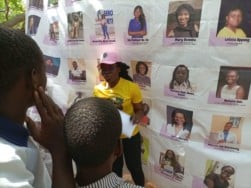 #STEMSheCan speakers include Priscilla Baffour, a petroleum engineer, teacher, and mentor who talked about career pathways and gave examples of Ghanaian women who have excelled in STEM jobs. Abdul-Razak Issah, a former mathematics and information technology teacher and the founder of LING, offered students hands-on experience with STEM tools such as robots and drones. Eugenia Agyeiwaa Boadi, founder and leader of SpesForLife, told students, “I was born and raised in a rural community in the Eastern region, yet I have become an engineer. This means that all of
#STEMSheCan speakers include Priscilla Baffour, a petroleum engineer, teacher, and mentor who talked about career pathways and gave examples of Ghanaian women who have excelled in STEM jobs. Abdul-Razak Issah, a former mathematics and information technology teacher and the founder of LING, offered students hands-on experience with STEM tools such as robots and drones. Eugenia Agyeiwaa Boadi, founder and leader of SpesForLife, told students, “I was born and raised in a rural community in the Eastern region, yet I have become an engineer. This means that all of 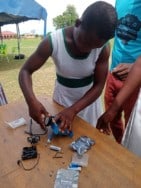 you can become what you want to be provided you study hard enough and believe in yourselves,” and recited a poem titled “I am enough” to encourage them. She also taught the girls how to form clouds in a 500ml bottle using a science kit. The simple experiment showed that science is not as difficult as the girls might think; all you need is information and the right tools.
you can become what you want to be provided you study hard enough and believe in yourselves,” and recited a poem titled “I am enough” to encourage them. She also taught the girls how to form clouds in a 500ml bottle using a science kit. The simple experiment showed that science is not as difficult as the girls might think; all you need is information and the right tools.
Girls left these programs with a newly discovered interest in STEM and related careers, and parents and other community members who attended the sessions recognize their role in expanding girls’ knowledge and opportunities.

